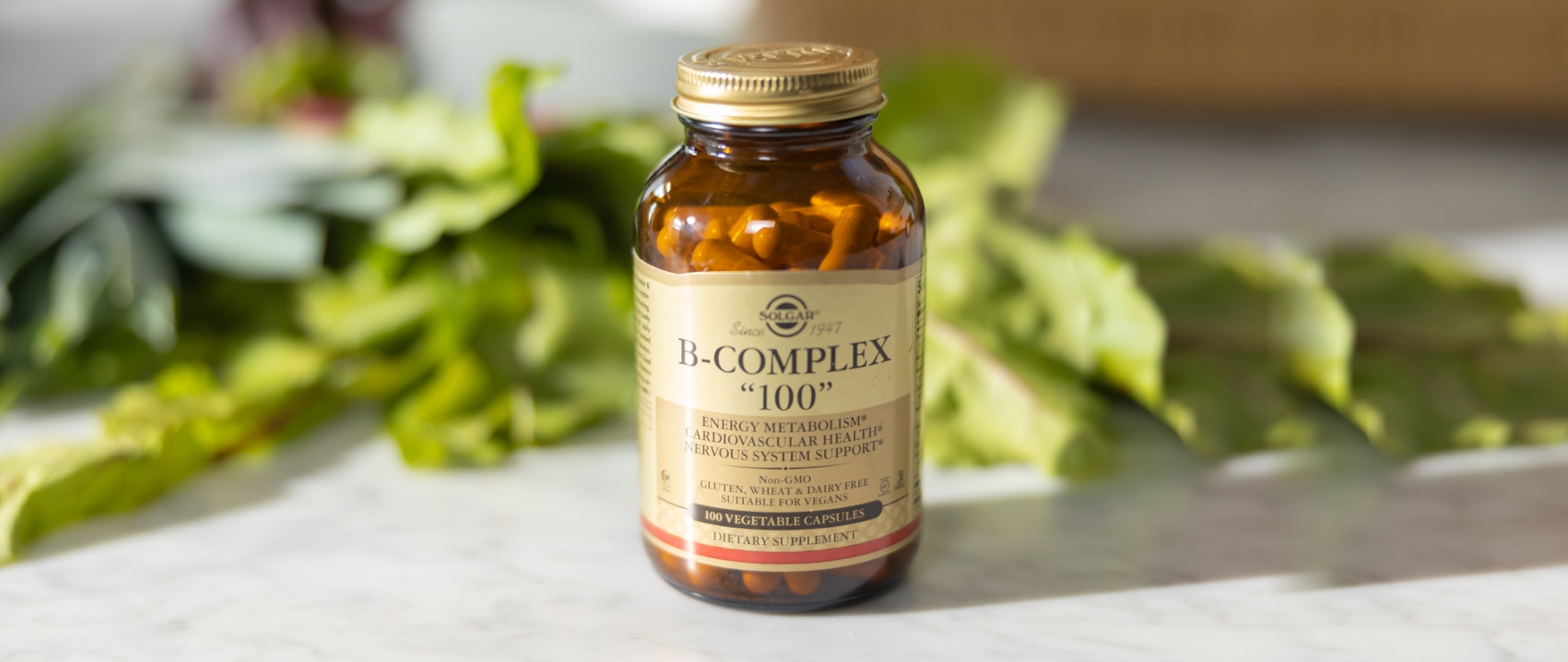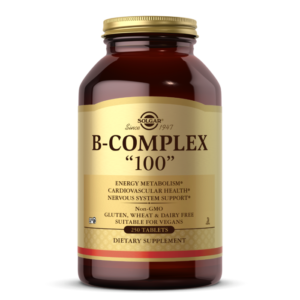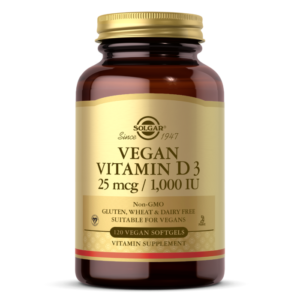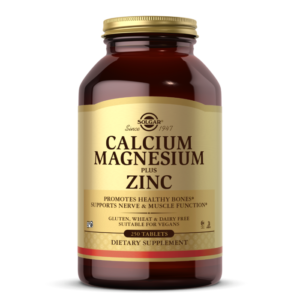Key Takeaways:
- B-vitamins, iron, vitamin D, and calcium are all important nutrients that you may need more of if you are following a gluten-free diet.
Following a gluten-free diet may allow you to feel your best, but there’s a chance that you are missing out on certain key nutrients — especially if you suffer from celiac. Celiac disease can affect your body’s ability to absorb essential nutrients. And many foods that contain gluten are also fortified with essential vitamins and minerals that are not present in gluten-free products.
Thankfully, taking a quality supplement is an easy way to fill in nutritional gaps. Let’s take a look at the most important vitamins and nutrients you may need if you have a gluten-intolerance or sensitivity. Or, dive right in and explore all of our gluten-free supplements!
Why vitamin deficiencies are more common in people with celiac disease
Celiac disease is a digestive disorder characterized by an inflammatory reaction to gluten. When a person with celiac disease consumes gluten, the immune system mistakenly attacks the small intestine, causing damage to the villi, which are finger-like structures that help absorb vitamins and nutrients.1
If celiac disease is left untreated for a long time, it can cause enough damage to the small intestine that it can no longer absorb nutrients. This causes malabsorption.
Malabsorption is to blame for nearly all nutritional and vitamin deficiencies in celiac patients.
When a healthy person takes vitamins or eats nutritious foods, they are usually digested in the stomach and then moved to the small intestine, where vitamin absorption occurs.
If you have celiac disease, however, malabsorption means that most vitamins aren’t absorbed by the small intestine, and end up in the rectum instead.
1. Folate
Folate, or folic acid, is one of the B-complex vitamins. Folate is essential during pregnancy to help prevent birth defects, but everyone needs sufficient amounts of folate to help their bodies make new cells.
Many gluten-containing foods are fortified with extra folate. Gluten-free grain products, however, are made of neither whole grains nor enriched grains. Gluten-free grain products often replace gluten-containing whole or enriched grains with starches, which don’t contain folate.
If you’re eating gluten-free, you’ll need to take special care to make sure you’re getting enough folate.
Which gluten-free foods contain folate?
If you’re trying to eat more folate, think green. Spinach, asparagus, and brussel sprouts are all good sources of folate, as well as green peas and broccoli.
Taking a folate supplement is also an easy way to get your daily dose of folate.
Gluten-free folate supplement
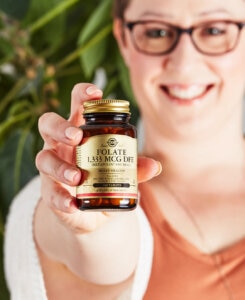
Solgar® Folate 1,333 MCG DFE
This gluten-free folate supplement supports prenatal health, heart and nervous system health, DNA and RNA production, and more.* And it’s also non-GMO, vegan, dairy-free, and kosher.
2. B-Vitamins
The B-vitamin complex is made up of eight water-soluble B-vitamins that play a number of essential roles in the body, including supporting energy metabolism and the growth and development of cells.*
Because B-vitamins are often added to processed, wheat-based foods in the fortification process but are not usually added to gluten-free foods. People who follow a gluten-free diet may not be getting enough of these essential nutrients, in particular, vitamins B6, B9 (folic acid), and B12.
Which gluten-free foods contain B-vitamins?
B-vitamins can be found in a variety of foods, including dark leafy greens, fatty fish, beans, nuts, and poultry. Since vitamin B12 is mainly found in animal foods, vegans may struggle to get enough of this vitamin.
The easiest way to fill in any nutritional gaps caused by a gluten-free diet is to take a B-vitamin supplement.
Gluten-Free B-Vitamin Supplement
Solgar® B-Complex “100”
Solgar® B-Complex “100” offers all your B-complex vitamins in one easy supplement, with 100 mg of almost all B-complex vitamins. And it’s gluten-free, dairy-free, non-GMO, vegan, and kosher!
Gluten-free vitamin B12 supplement
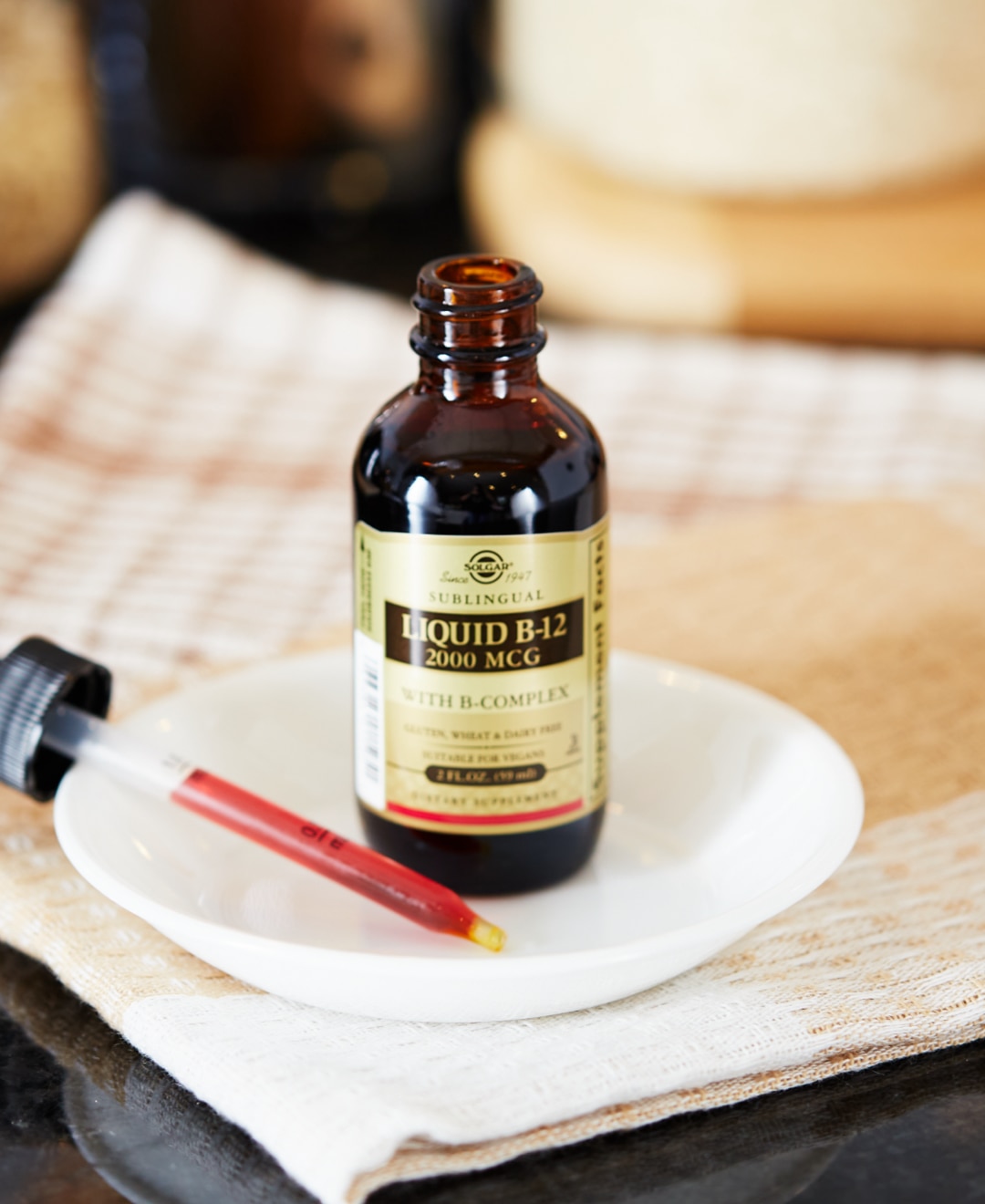
SOLGAR® LIQUID B12 WITH B-COMPLEX
This easy-to-take B12 supplement offers 2000 mcg of vitamin B12 and other B-vitamins as well. Each serving supports energy metabolism, cardiovascular and nervous system health and helps your body convert food into energy.*
Gluten-free vitamin B6 supplement
Solgar® Vitamin B6 100 mg
This gluten-free supplement helps support cellular energy and helps maintain a healthy nervous system.* And in addition to being gluten-free, it’s also vegan, dairy-free, and kosher.
3. Iron
Anemia, or iron deficiency, is one of the most common symptoms of celiac disease — especially in elderly people. 60-80% of elderly patients with celiac disease also had an iron deficiency.2
Again, this can be attributed to the damage to the intestinal lining of the small intestine, which causes malabsorption.3
Even without dietary restrictions, many people struggle to get enough iron. If you have a gluten intolerance and follow a gluten-free diet, you are even more likely to be lacking in this important mineral.
Like B-vitamins, iron is added to many fortified processed wheat foods and is not usually added to gluten-free products. Studies have shown that people who follow a gluten-free diet show greater signs of a deficiency in iron.4
Which gluten-free foods contain iron?
Gluten-free food sources of iron include dark leafy greens, red meat, egg yolks, and nuts and seeds.5
The easiest way to ensure you’re meeting your daily iron needs is to take a quality iron supplement.
Gluten-free iron supplements
SOLGAR® GENTLE IRON
This iron supplement uses a gentle, non-constipating formula and helps promote energy utilization, improve iron status, and transport oxygen throughout the body.* And, it is gluten-free, dairy-free, non-GMO, vegan, kosher, and halal!
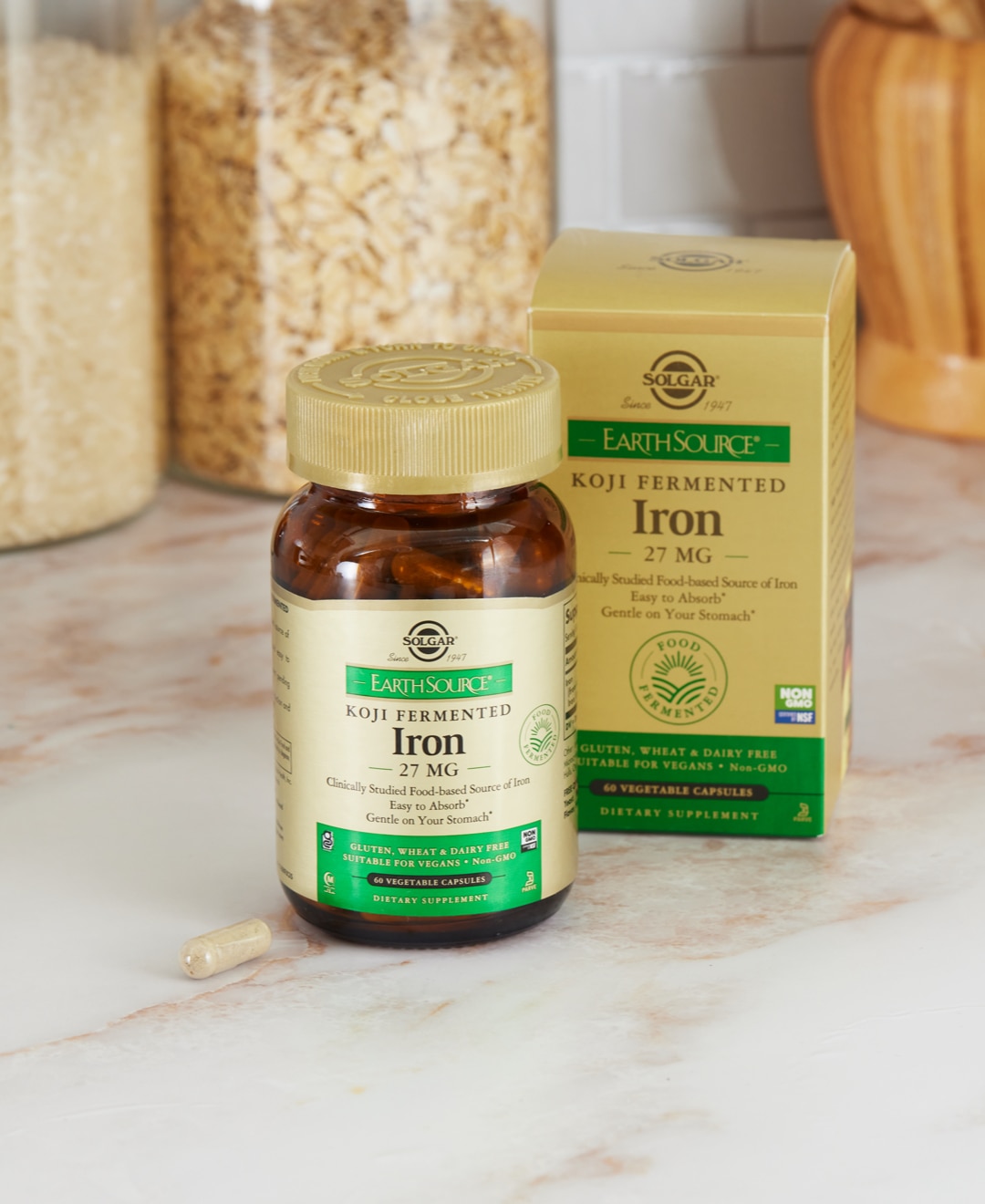
SOLGAR® EARTH SOURCE KOJI FERMENTED IRON
This unique iron formula is a food-based, fermented source of iron that is gentle on the stomach and easy for the body to absorb.* It’s gluten-free, dairy-free, non-GMO, vegan, kosher, and halal!
4. Vitamin D
Vitamin D is essential for supporting a healthy immune system, strong teeth and bones, and more. Yet 64% of men and 71% of women with celiac disease have a vitamin D deficiency.6
For celiac patients, damage to the gut lining (also known as villous atrophy) causes malabsorption of vitamin D.
And, because vitamin D helps the body absorb calcium, malabsorption of vitamin D can also lead to a calcium deficiency.7
Sunshine is the body’s main source of vitamin D, but it is not the only source. Vitamin D can also be found in fortified dairy and cereals, and oatmeal products. If you are gluten-free (or dairy-free) you may not get enough vitamin D.
Which gluten-free foods contain vitamin D?
Unfortunately, few foods contain much vitamin D. Cold-water fish like swordfish and sockeye salmon are the exceptions, which contain substantial amounts of vitamin D. However, the easiest way to get adequate amounts of body-ready vitamin D is to take a supplement.
Gluten-free vitamin D supplements
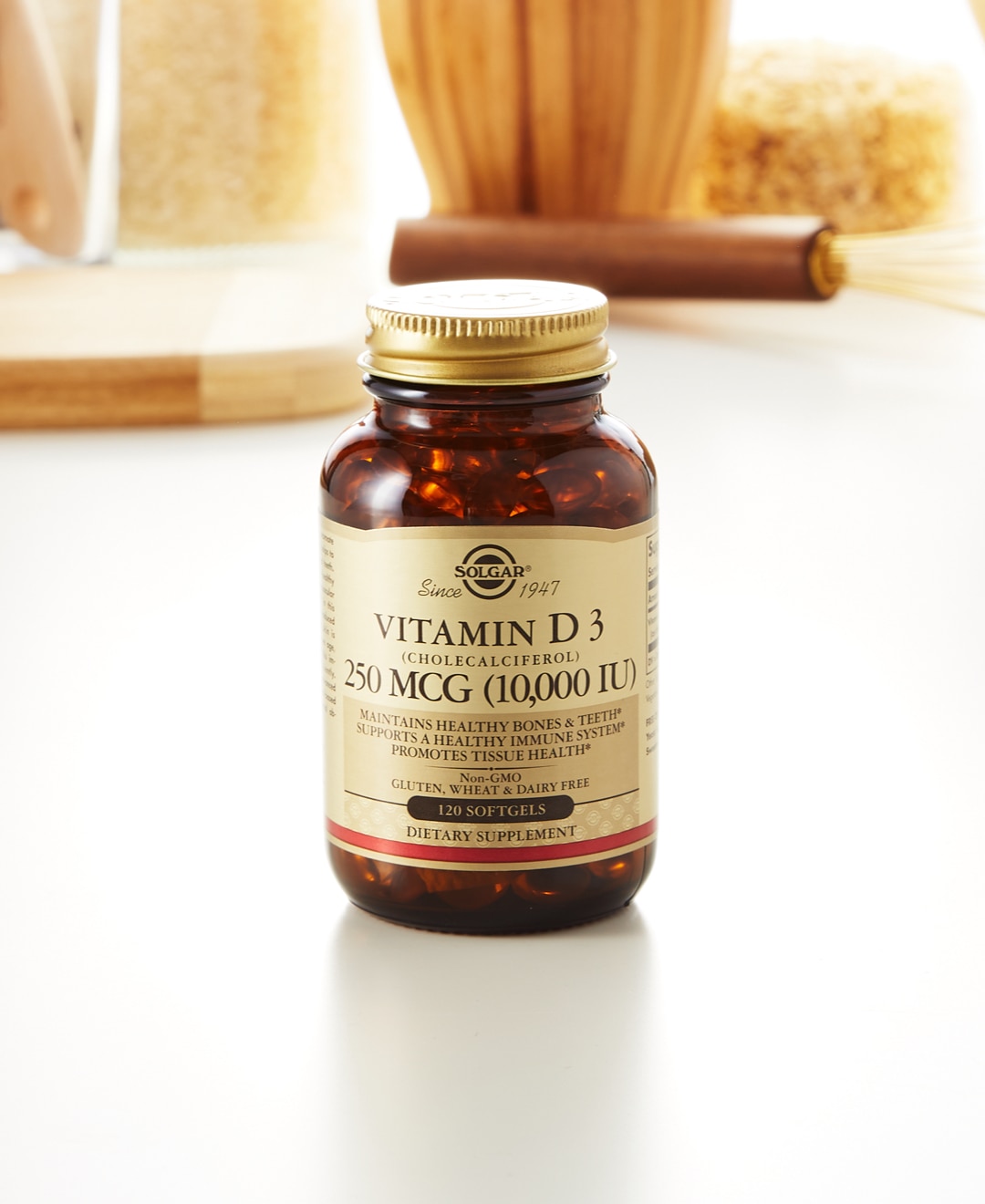
Solgar® VITAMIN D3 (CHOLECALCIFEROL) 250 MCG (10,000 IU) SOFTGELS
Since Vitamin D is fat soluble, these convenient, oil-based softgels are easy to swallow and absorb. One softgel taken daily supports a healthy immune system, strong bones and teeth, and optimal nerve and muscle function.* And, it’s gluten-free, non-GMO, and dairy-free!
Solgar® Vegan Vitamin D3 25 mcg (1000 IU)
Solgar® Vegan Vitamin D3 is made with naturally & responsibly sourced lichen, a slow-growing plant that lives on rocks and trees and naturally produces vitamin D3. And it’s gluten-free, vegan, kosher, and non-GMO.
5. Calcium
Calcium is an essential mineral for healthy bones and teeth, nerve health, and more.8
However, approximately 75% of newly diagnosed celiac disease patients have reduced bone mineral density due to inadequate calcium absorption.9
Thankfully, there are many food options with ample calcium.
Which gluten-free foods contain calcium?
Gluten-free sources of calcium include dairy products such as milk, yogurt, and cheese and certain vegetables such as kale and broccoli. The easiest way to ensure you’re getting enough calcium is to take a calcium supplement that offers magnesium, which helps absorption.
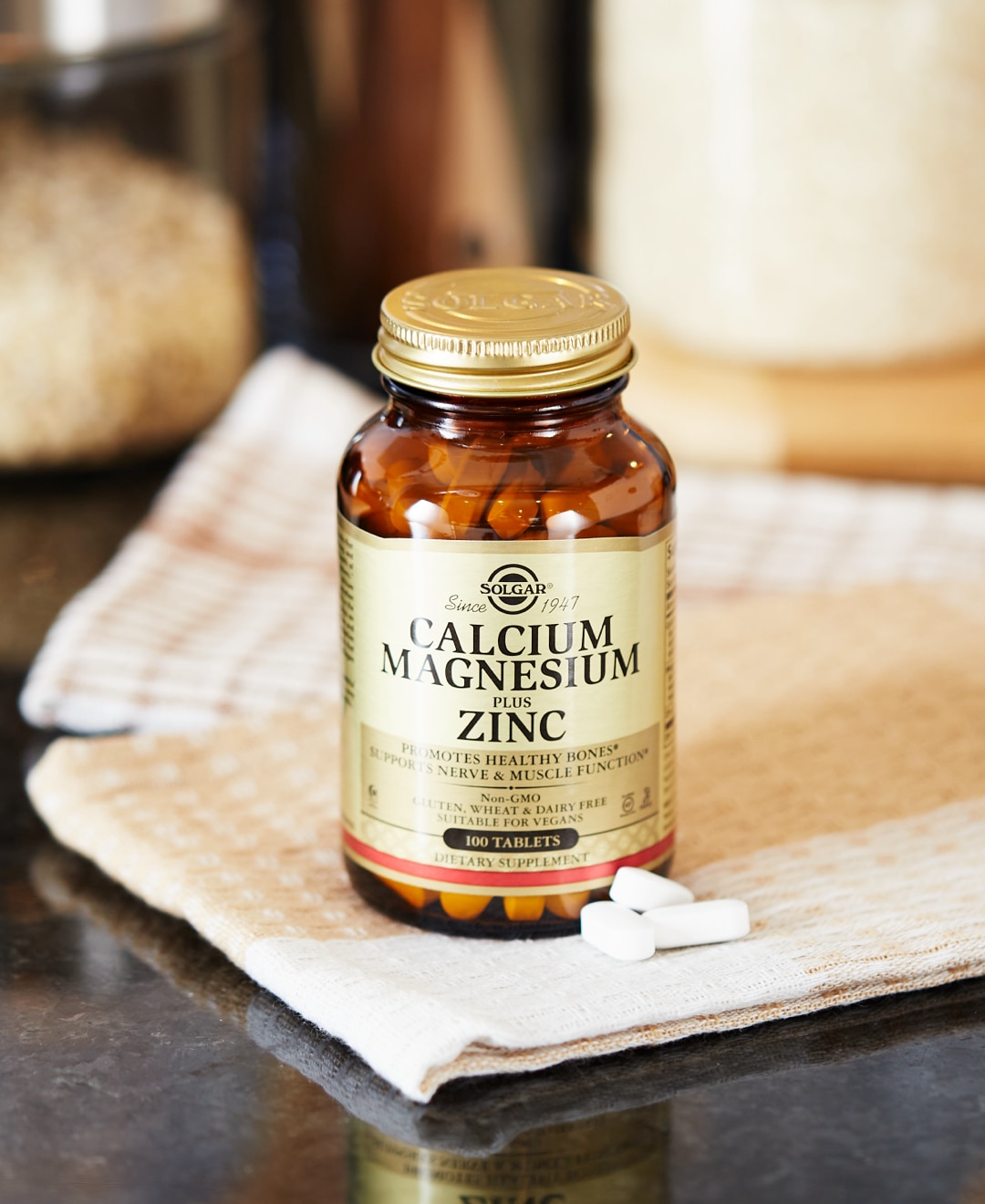
Gluten-free calcium supplements
Solgar® CALCIUM MAGNESIUM PLUS ZINC
Solgar® Calcium Magnesium Plus Zinc helps maintain a healthy immune system, supports strong bones and teeth, maintains proper nerve and muscle function, and more!* And, it’s gluten-free, vegan, non-GMO, kosher, and halal.
Solgar® LIQUID CALCIUM MAGNESIUM CITRATE WITH VITAMIN D3
This easy supplement offers three essential nutrients in one spoonful. Magnesium and vitamin D are both needed for calcium absorption.* And, it’s gluten-free, dairy-free, and kosher!
Other gluten-free supplements you may need:
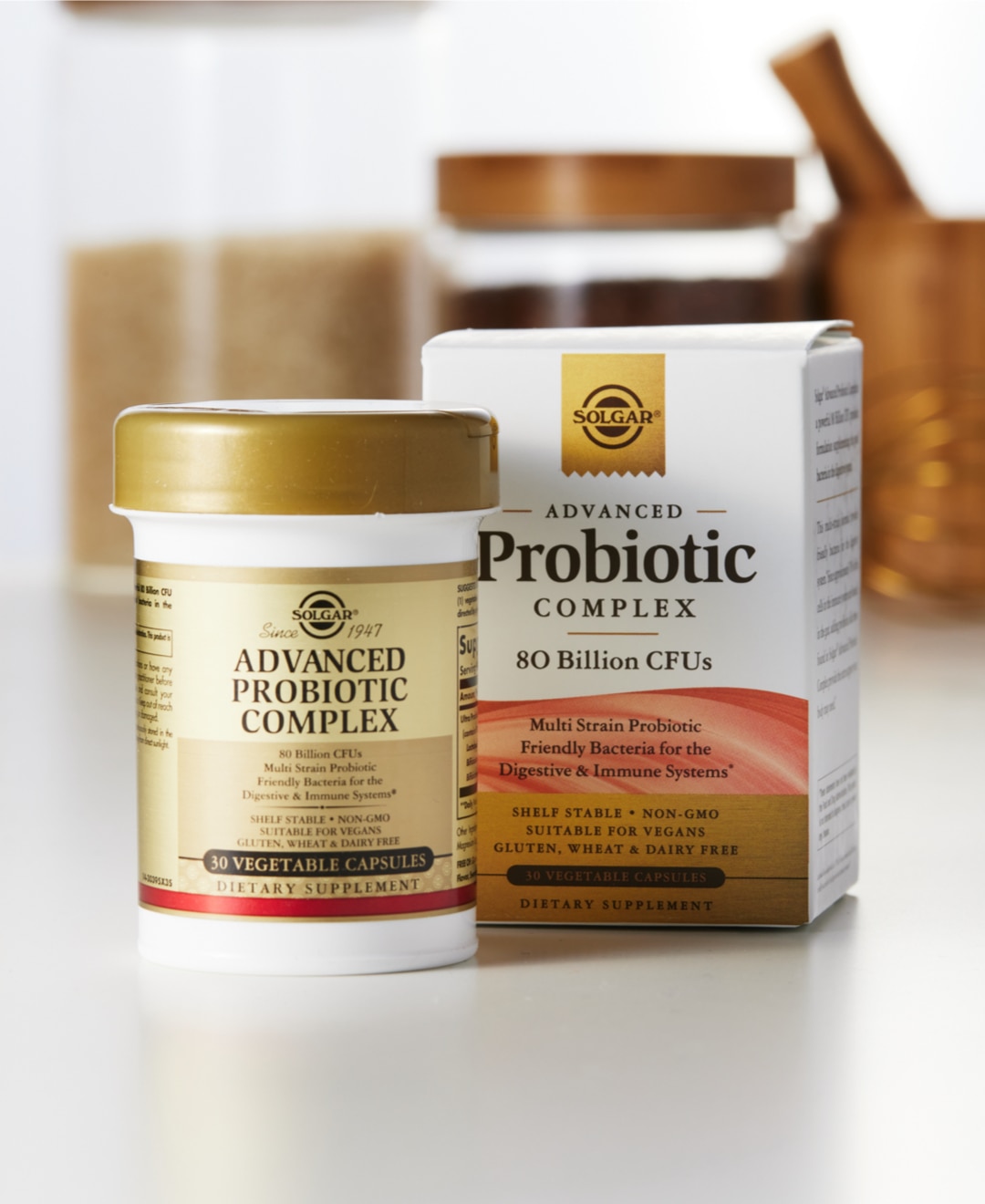
Gluten-free probiotics
Solgar® ADVANCED PROBIOTIC COMPLEX
Solgar® Advanced Probiotic Complex is our most powerful probiotic yet. This multi-strain probiotic offers 80 Billion CFUs and provides friendly bacteria for the digestive system & immune system.* And, it’s gluten-free, vegan, non-GMO, and dairy-free.
Solgar® PROBI 30 BILLION
Solgar® Probi® 30 Billion is a single-strain probiotic that has undergone over ten years of scientific review. Each serving helps alleviate occasional gas, bloating, and abdominal discomfort and even helps improve iron absorption in women of childbearing age. And it’s gluten and dairy free!
GET THE LATEST UPDATES AND EXCLUSIVE DEALS WHEN YOU SIGN UP FOR OUR NEWSLETTER!
The bottom line
Dietary restrictions such as following a gluten-free diet may help you feel your best, but you may be missing out on important nutrients such as B-vitamins, iron, vitamin D, and calcium. Supplements are the easiest and most effective way to fill these nutritional gaps. Follow us on Tiktok for quick and easy vitamin tips!
*These statements have not been evaluated by the Food and Drug Administration. These products are not intended to diagnose, treat, cure or prevent any disease.
The information provided on this site is intended for your general knowledge only and is not a substitute for professional medical advice or treatment for specific medical conditions. Always seek the advice of your physician or other qualified healthcare provider with any questions you may have regarding a medical condition. The information on this website is not intended to diagnose, treat, cure or prevent any disease. Never disregard medical advice or delay in seeking it because of something you have read on the Solgar® site.


